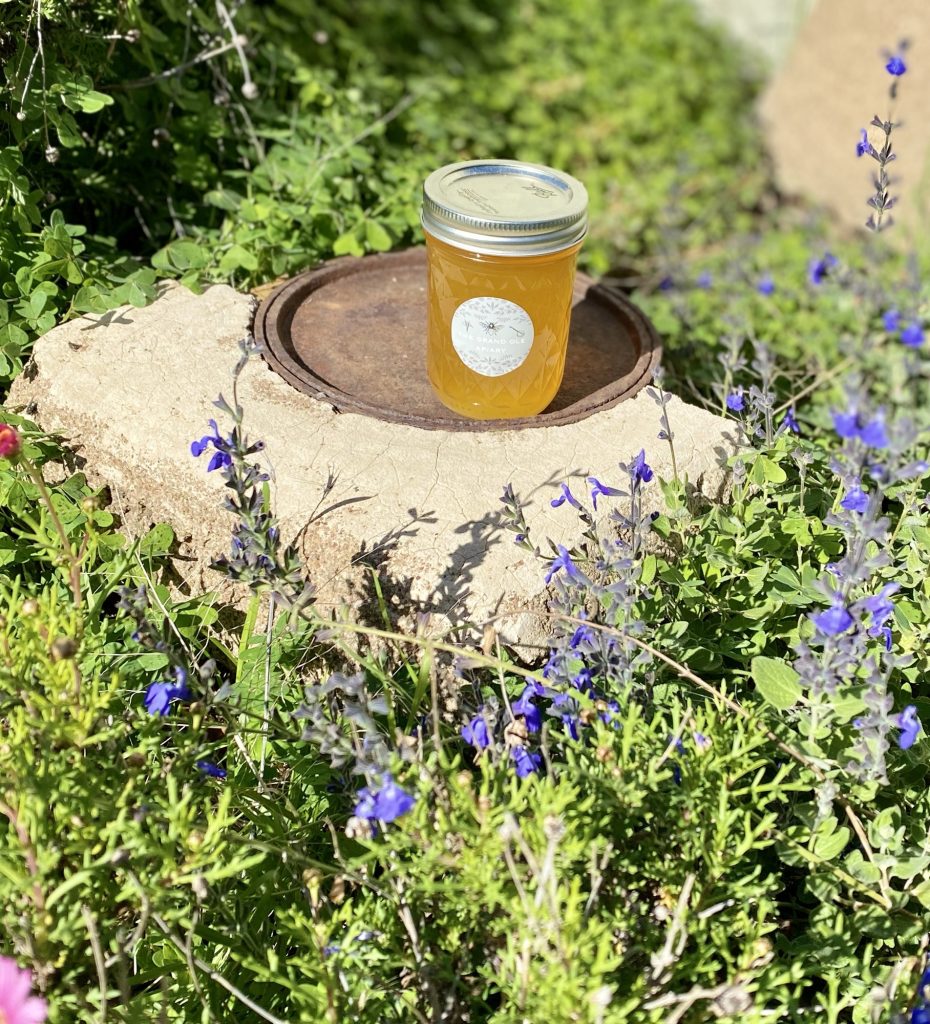
Why Plant Choices Matter for Bees
Bees rely on nectar and pollen throughout the year. Choosing the right plants in your garden or backyard can:
- Boost honey production
- Support colony health
- Provide a continuous food source through seasonal changes
For NSW beginners, planting a mix of native and garden plants ensures bees have reliable forage year-round.
Seasonal Planting Guide for NSW
Spring (September–November)
- Native Plants: Grevillea, Bottlebrush (Callistemon), Kangaroo Paw
- Garden Plants: Lavender, Rosemary, Basil, Sunflowers, Roses
- Tips: Focus on early bloomers to help colonies build strength after winter.
Summer (December–February)
- Native Plants: Eucalyptus, Melaleuca, Hakea
- Garden Plants: Sage (Salvias), Thyme, Borage, Coriander, Roses
- Tips: Provide shade and water during heatwaves; bees are most active in early mornings.
Autumn (March–May)
- Native Plants: Banksia, Grevillea, Callistemon
- Garden Plants: Fennel, Marigold, Lavender, Sunflowers, Roses
- Tips: Help colonies store honey for winter by planting late-flowering species.
Winter (June–August)
- Native Plants: Native Ginger, Pittosporum, Snowy Mountains Gum
- Garden Plants: Winter-flowering Pansies, Violas, Camellias
- Tips: Even in winter, bees need pollen; plant wind-protected spots to encourage foraging.
Top 10 Bee-Friendly Plants for NSW Beginners
- Grevillea
- Bottlebrush (Callistemon)
- Lavender
- Rosemary
- Eucalyptus
- Borage
- Banksia
- Sage (Salvias)
- Thyme
- Kangaroo Paw
Note: Add roses in spring, summer, and autumn for extra nectar and pollen.
FAQs – Planting for Bees in NSW
Q1: Do native plants produce more nectar than garden plants?
Native plants are often better adapted to local conditions and can provide consistent nectar and pollen throughout the year.
Q2: How many different plants should I grow?
Aim for at least 5–10 species with staggered flowering times to ensure a continuous food source.
Q3: Can I plant in small suburban gardens?
Yes. Even pots with herbs like rosemary, thyme, lavender, or salvias can provide valuable forage.
Q4: Do bees need water in winter?
Yes, they still need water. Provide shallow, pebbled containers in sheltered areas.
Q5: Should I avoid pesticides?
Absolutely. Avoid spraying flowering plants; use bee-friendly pest control methods.
Planting a bee-friendly garden in NSW is one of the most effective ways to support your colonies and boost honey production. By combining native and garden plants with a seasonal strategy, beginners can create a thriving environment for their bees.
Next steps: Combine this planting guide with our Spring Beekeeping Checklist and Essential Beekeeping Equipment Guide to ensure your hive thrives year-round.
Leave a Reply